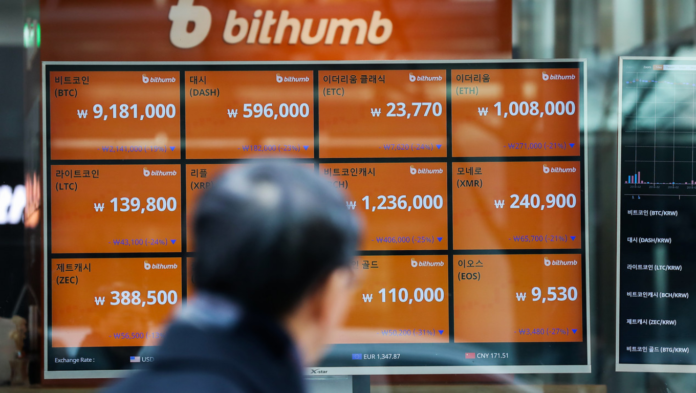South Korean crypto exchange Bithumb is ramping up its security measures following a data breach at SK Telecom, the country’s biggest mobile carrier. The incident has triggered fresh concerns about user data protection in one of the most tech-forward crypto markets in the world.
In a recent alert to customers, Bithumb confirmed that the breach at SK Telecom could pose risks to user accounts. Although the exchange itself wasn’t compromised, it is taking no chances. According to Bithumb, it has already strengthened internal security protocols and is actively monitoring for any signs of unusual activity linked to the breach.
SK Telecom reported that the breach involved malware targeting USIM-related data—information connected to mobile identity verification systems commonly used in South Korea. The breach was discovered on April 19, when the telecom provider noticed suspicious activity on several devices. Once detected, SK Telecom acted quickly by removing the malware and isolating the affected hardware.
The company has emphasized that there is no confirmed misuse of the leaked data so far. However, given the sensitive nature of USIM information, both companies are taking the situation seriously. This kind of data could potentially be used in SIM swap attacks, where bad actors gain control of a victim’s phone number and use it to access online accounts.
To reduce further risk, SK Telecom has rolled out preventive actions, including comprehensive system reviews and upgrades to block unauthorized SIM swaps and suspicious authentication attempts. These changes aim to close any security gaps that may have been exposed during the breach.
Bithumb, on its part, has urged users to review their account security settings and remain vigilant. Users are being advised to activate two-factor authentication (2FA), regularly update passwords, and watch for any messages or login attempts they did not initiate. The exchange reassured customers that its platform remains secure, but emphasized that caution is necessary when third-party service providers are involved.
This breach highlights a growing cybersecurity challenge facing the crypto ecosystem. Exchanges like Bithumb often rely on external data and authentication systems, such as those provided by mobile carriers, to verify user identities and secure logins. When those systems are compromised, even indirectly, they can become a backdoor into more critical financial infrastructure.
In South Korea, where mobile authentication is widely used in financial services and crypto platforms, the implications of such a breach go beyond just telecom customers. The incident brings into focus the need for tighter integration and coordination between tech providers, mobile operators, and financial platforms to manage risks more proactively.
Founded in 1984, SK Telecom serves over 31 million users, controlling more than a third of South Korea’s mobile market. Its role as a dominant telecom provider makes it a key player in digital identity verification across multiple sectors. That influence is precisely what makes this breach particularly concerning for crypto users and fintech companies operating in the region.
This isn’t the first time the crypto community has had to deal with fallout from third-party data leaks. Over the past few years, security breaches involving cloud services, hardware vendors, and social platforms have had a domino effect on exchanges and wallets. As crypto adoption grows, the industry’s security posture needs to evolve with it, accounting for risks that originate beyond the exchange’s own infrastructure.
Bithumb’s swift response and transparent communication are reassuring signs for its user base. By proactively implementing new monitoring tools and engaging its customers with clear steps to protect their accounts, the exchange is showing leadership in crisis management. However, the event is a reminder that even the most secure platforms are only as strong as the weakest link in their tech ecosystem.
For users, this is an ideal time to reassess personal cybersecurity habits. Simple actions like enabling 2FA, avoiding shared credentials, and staying updated on breach alerts can make a big difference. In a world where digital identity is the new key to your finances, guarding it should be top priority.















